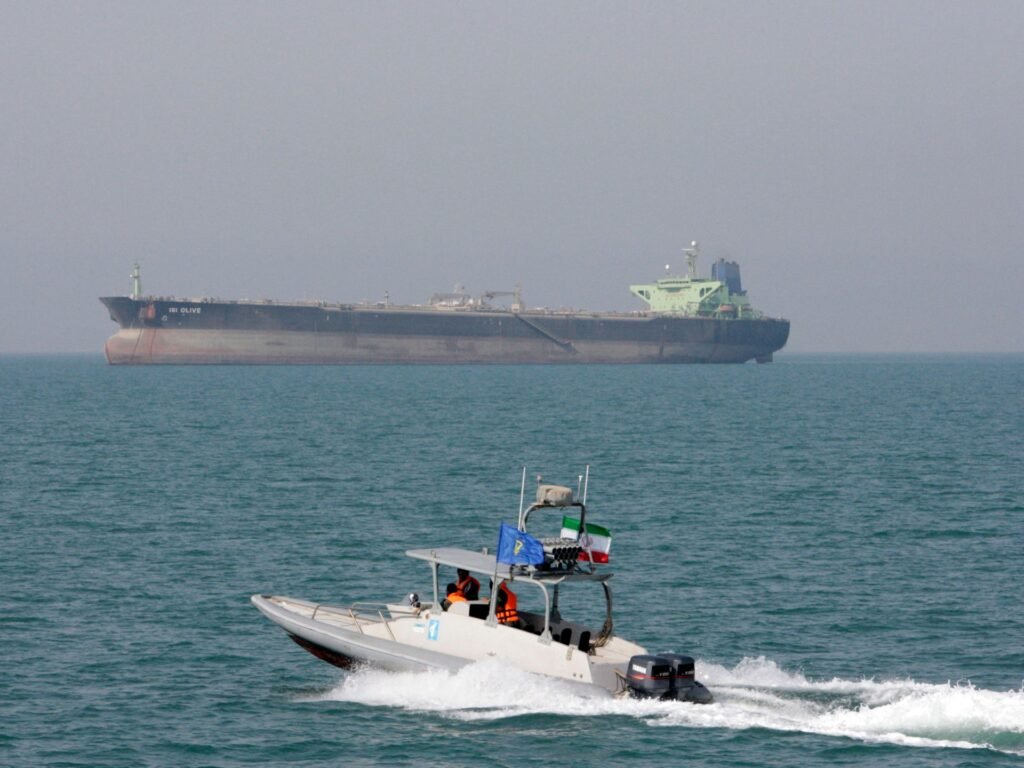The recent Israeli strike on military and nuclear locations in Iran, followed by Iran’s response, has severely disrupted already fragile global supply chains.
Airlines are halting flights to Tel Aviv, Tehran, and various regional airports, while oil firms, shipping companies, and regulatory bodies are on high alert due to fears that critical trade routes, including the Strait of Hormuz, could become conflict zones.
Although merchant vessels continue to navigate the Strait of Hormuz, they are doing so with heightened caution. Iran has previously threatened to shut down this vital shipping lane in reaction to Western pressures, and even the mere mention of such a possibility has led to significant market fluctuations, pushing oil prices higher.
President Donald Trump’s recent statements have not alleviated these worries. He warned that failure to reach an agreement with Iran could lead to increased “death and destruction.”
“Should the United States be perceived as involved in any attacks, the chances of escalation rise dramatically,” stated Jakob Larsen, chief safety and security officer at shipping association BIMCO, in an interview with Reuters.
Surge in Oil Prices
As of 4:00 PM New York time (20:00 GMT), Brent crude oil prices, a worldwide benchmark, surged by 5 percent compared to the previous day’s close.
At one stage, oil futures spiked more than 13 percent, reaching their highest point since January.
A potential closure of the Strait of Hormuz—a key route linking the Arabian Gulf and the Gulf of Oman through which about 20 percent of global oil supply flows—could cause oil prices to soar even further. This scenario could amplify inflationary pressures worldwide, especially in the US.
This price increase follows a surprising Consumer Price Index report from the US, which indicated only a 0.1 percent price rise for the month. Despite energy costs fueling inflation, petrol prices dropped by 2.6 percent during this timeframe. Consumer sentiment also saw its first rise in six months as tariff anxieties subsided. However, analysts at JPMorgan Chase suggest that the new hostilities could hinder the relief that American consumers were beginning to feel.
Keeping an Eye on Developments
“If energy prices remain high, it could severely affect inflation, reversing the recent trend of declining consumer prices in the US,” wrote JPMorgan Chase commodity analysts in a note following the strike. “We still believe that any policies risking higher oil prices align with Trump’s primary goal of keeping energy prices low—a key promise of his campaign,” analysts Natasha Kaneva, Prateek Kedia, and Lyuba Savinova noted.
The broader stock markets reacted negatively to this news. The S&P 500 lost 1.1 percent, the Dow Jones Industrial Average fell by 1.7 percent, and the Nasdaq dropped 1.3 percent.
“As reflected in the market trends, whether it’s the S&P or Bitcoin, the situation seems relatively stable or stagnant. People are adopting a wait-and-see stance. Oil prices are particularly volatile as Iran plays a crucial role in global oil supply. However, Israel has so far avoided targeting Iranian oil facilities. A change in this policy could lead to a much more significant impact,” remarked Taufiq Rahim, an independent geopolitical expert and Principal at 2040 Advisory, during an interview with Al Jazeera.
If shipping through this vital route were to be halted, even temporarily, the International Energy Agency (IEA) has stated it could release emergency reserves if required. However, this approach risks tapping into these reserves.
The IEA currently holds 1.2 billion barrels in strategic reserves, while the world consumes around 100 million barrels of oil each day.
“If the Strait of Hormuz were to close, it would trigger the most significant oil shock ever,” warned Matt Gertken, chief geopolitical strategist and senior vice president at BCA Research, speaking to Al Jazeera.
OPEC Secretary-General Haitham al-Ghais criticized the IEA for suggesting the release of strategic reserves, arguing it creates unnecessary alarm and cultivates market fear by implying a need to possibly tap into emergency oil stocks.
This statement comes amidst increasing pressures on oil-producing nations to boost output. Earlier this month, OPEC+ agreed to raise production by 411,000 barrels for July.
The Strait of Hormuz remains open for now. Countries like Greece and the United Kingdom have advised vessels to steer clear of the Gulf of Aden, which connects to waters near Israel, and to document all journeys through the Strait, as reported by Reuters.
Could Further Escalation Be Ahead?
Iran may consider striking Iraq to limit global oil supply and heighten tensions. According to a report from The New York Times, Iran previously attacked Iraq in January 2024, claiming it was a reaction to attacks on its territory.
“We should prepare for the possibility of losing both Iranian and Iraqi oil production, which could lead to a decrease of five to seven million barrels per day,” Gertken warned in an interview with Al Jazeera.
He believes Iran’s actions would aim to provoke the West without directly targeting Saudi Arabia or closing the Strait of Hormuz, which would certainly provoke a US response. Instead, they would focus on regional production targets where they could maintain plausible deniability, possibly attributing attacks to militant groups.


